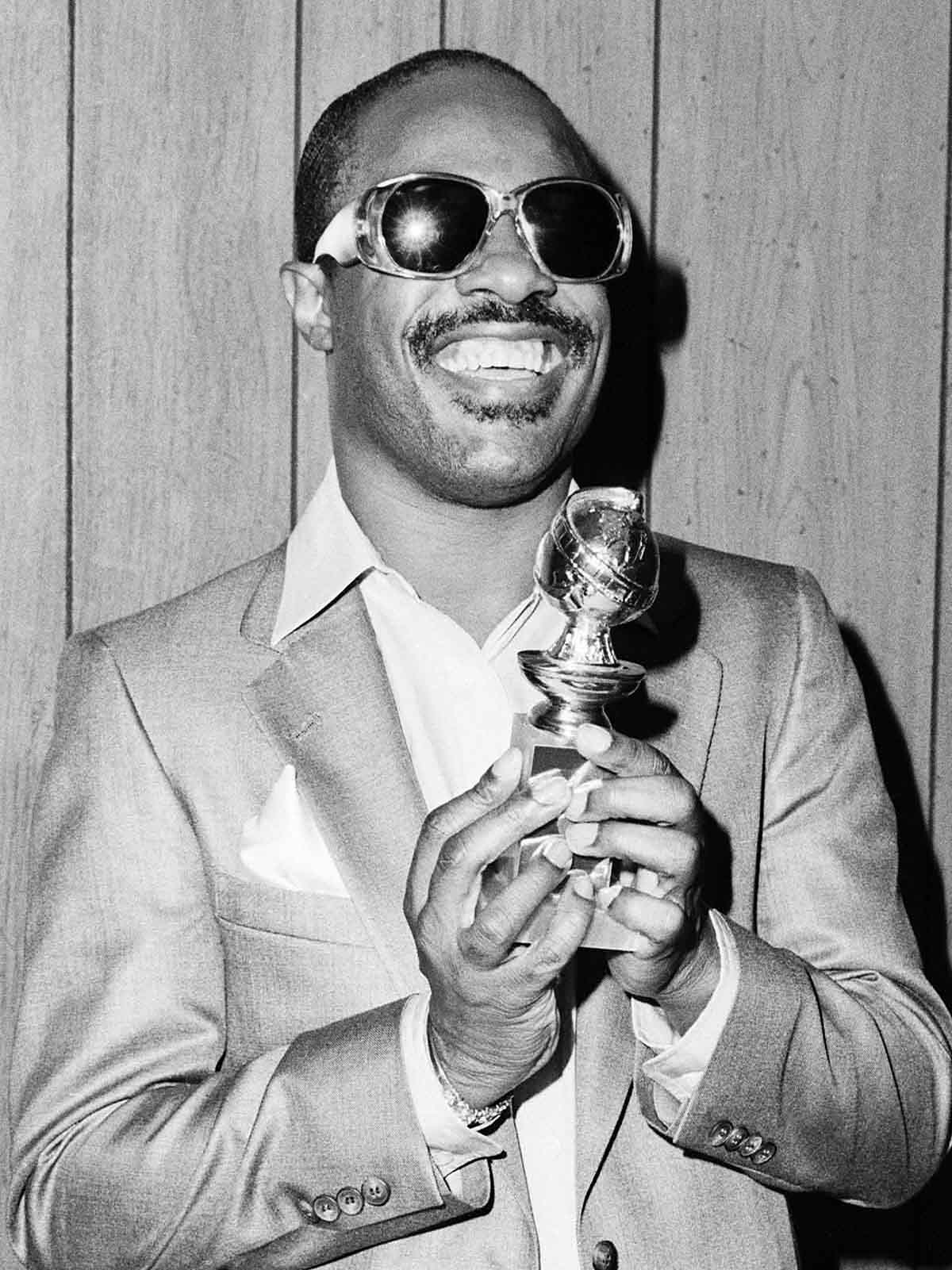
- Golden Globe Awards
Out of the Archives, 1985: Stevie Wonder on Apartheid
Stevie Wonder, when interviewed by the journalists of the Hollywood Foreign Press in 1985, about his Golden Globe-winning song (and major evergreen hit) “I Just Called to Say I Love You” for the movie The Woman in Red directed by Gene Wilder, talked about apartheid.
“Just to make the record straight, I did not say anything about the government of South Africa, because we are clear on where that’s coming from already. What I did do, as I have done many times before, and in all respect to the Academy, because I did not want to come on and take the time and opportunity to politicize the whole thing, is that I dedicated the award in the name of a person, of a human being, Nelson Mandela. I don’t regret that and if I’m to be banned for speaking of a person who is fighting for equality and freedom for all people, then so be it.”
“There are songs I actually wrote about a year-and-a-half ago, that I plan to have on my next album called You Know That Apartheid’s Wrong. There are many things that we, as writers, can talk about, so it isn’t that I plan to spend the rest of my life playing out any one thing, but clearly many of us, in our own way, voice our opinions and our feelings. That is a writer’s prerogative and I have taken advantage of that.”
“My support of blacklisted artists is a personal thing. I have not ever performed in South Africa and until the conditions change I won’t. Maybe I won’t even after they change at this rate. Some people are not aware, and I’m very very thankful that I was made aware. I’m very happy for the technology that is happening for the blind that enables myself and people like me to get information a lot sooner, to read about it, to think about it and to come up with my decision about how I feel.”
“Many years ago it was proven that being physically blind is not a sin, but being spiritually and mentally blind is, not seeing a need for unity, that apartheid cannot exist and that being prejudiced against anyone for any reason is a blindness that humanity and mankind cannot accept.”
“I felt honored that so many talented artists, from their heart, decided to come together to sing that ‘We are the world, we are the children.’ At U.S.A. For Africa, you had people from various cultures, and it was an incredible experience I’ll be able to tell my grandkids about. It goes to show you that in this country we are in a very special place. Americans and all the various leaders of this country must realize that we can spearhead the kind of energy that will be responsible for bringing people together, that we do have a melting pot of many different people of different cultures here. And if we can encourage others throughout the world to practice this kind of unity, we will be able to live through the sand footprints of time in saying, yes I was a part of that nation.”

